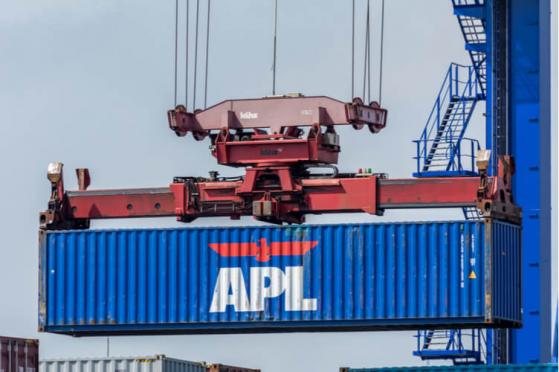Accenture, AB InBev, APL, Kuehne + Nagel, and a Europe-based customs organization have succeeded in a blockchain pilot aiming to reduce the need for documents in the shipping process. The consortium hopes the freight and logistics business would save hundreds of millions of US dollars each year with the help of this distributed ledger technology (DLT) platform.
The group experimented with the blockchain system to avoid the exchange of documents in physical or digital form. Instead, the data were included in a DLT platform under single ownership rules based on the type of information.
Currently, a shipment process at the international level involving companies operating in the consumer goods, retail, or auto industries requires over 20 documents to allow the merchandise to get from exporter to importer. Many of these documents are paper-based, and their flow is slow, delaying the settlement of goods. The new system can streamline all the processes, increase their security, and cut costs.
Adriana Diener-Veinott, head of Accenture’s Freight & Logistics segment, commented as follows:
“Our trials have proven the viability of a shipping process in which many documents can be replaced by secure and distributed data sharing with clear and defined ownership. This gives companies a significant opportunity to save time and money while improving their service to customers.”
The consortium members represented stakeholders across the shipping process. Thus, AB InBev acted as a typical exporter, APL was a shipping organization, Kuehne + Nagel helped with the requirements for a freight forwarding agent, and the customs organization acted as a regulatory supervisor.
Accenture offered blockchain consulting solutions and built the system. The company has relevant experience in Singapore through its participation in Project Ubin, which was initiated by the Monetary Authority of Singapore (MAS) and the Association of Banks in Singapore (ABS).
The freight industry consortium has tested 12 real shipments with different destinations, each with its unique regulatory requirements. The tests concluded that blockchain could significantly cut costs and boost supply chain visibility.
Eddie Ng, who leads APL’s Strategic Liner Management, said:
“As a facilitator of global trade and strong advocate of innovation, APL sees much potential in blockchain technology to accelerate the digital transformation of the container shipping industry, moving us from traditional paper-based transactions to more efficient, more secure and faster processes along the entire supply chain.”
This article appeared first on Cryptovest
